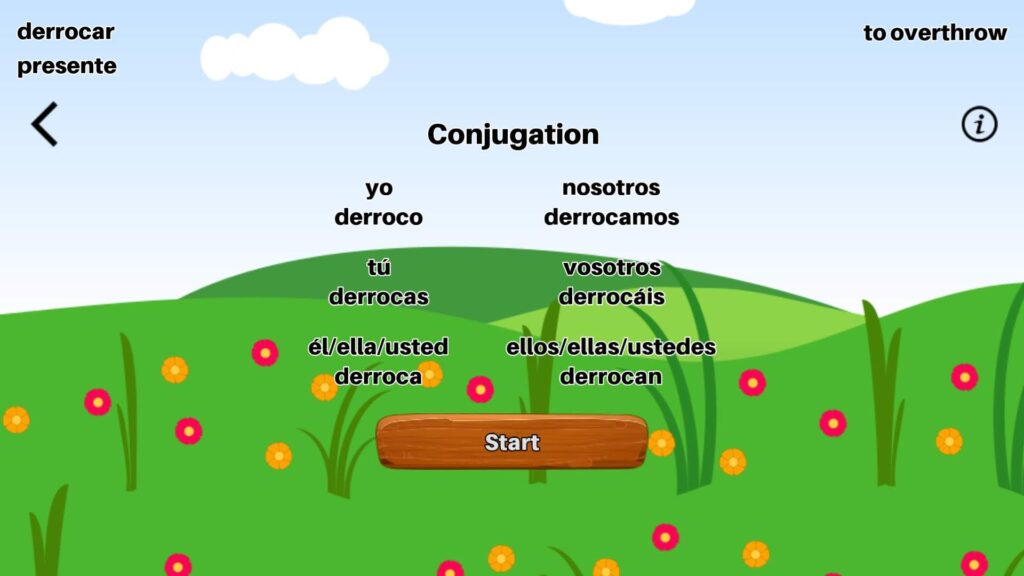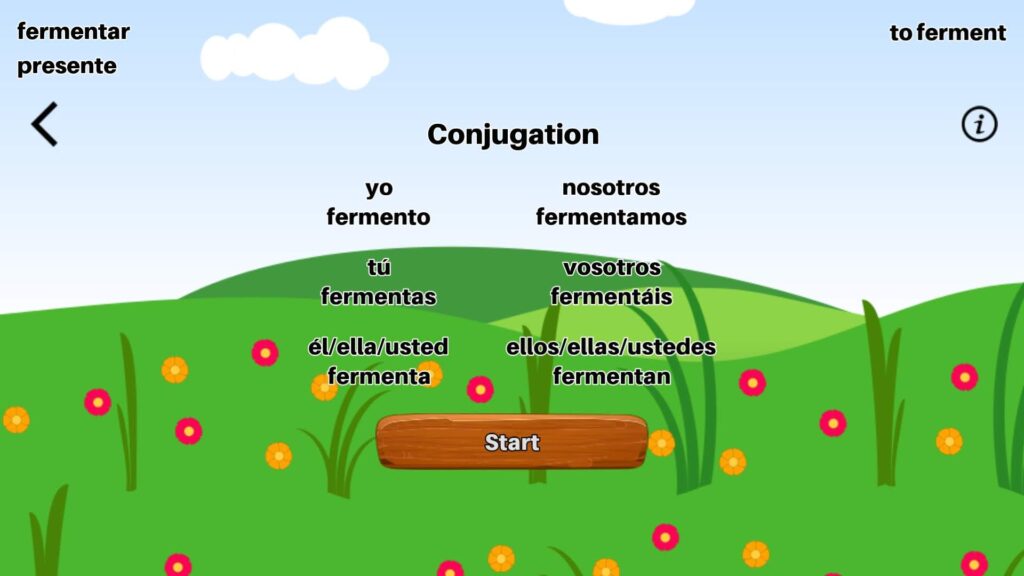Hola, Conjugation Champions!
Welcome to today’s powerful edition of your daily Spanish conjugation blog! Today’s verb is derrocar, which means “to overthrow.” Perfect for those moments in history, politics, or even in metaphorical situations when something or someone is brought down from a position of power. Let’s dive into its conjugation, uses, and some practical tips to master it.
Definition and Meaning
Derrocar: To overthrow, to bring down from a position of power or authority.
Example: El pueblo decidió derrocar al tirano. (The people decided to overthrow the tyrant.)
Present Tense Conjugation

Usage Tips
- Historical Contexts: Use “derrocar” when discussing revolutions, coups, or historical events where regimes were overthrown.
- Metaphorical Uses: Apply it in everyday contexts when talking about challenging the status quo or significant changes in any area.
- Pronunciation: Stress the second “o”: de-rro-CAR.
Sentence Practice
- Present Tense: Ellos derrocan al gobierno corrupto. (They overthrow the corrupt government.)
- Preterite Tense: Derrocamos al líder injusto el año pasado. (We overthrew the unjust leader last year.)
- Imperfect Tense: Siempre derrocaban a los tiranos en sus historias. (They always overthrew tyrants in their stories.)
Quiz of the Day
Translate the following sentences into Spanish using “derrocar”:
- The rebels plan to overthrow the dictator.
- She overthrew her fears and doubts.
- We used to read about how they overthrew kings.
(Answers at the bottom of this post!)
Keep overthrowing, keep learning, and keep refining those Spanish skills! Every verb you master brings you one step closer to fluency. ¡Hasta mañana!
Stay tuned for tomorrow’s verb and enjoy your day!
Saludos,
Daniela from the DOMA Games team
Answers to Quiz
- Los rebeldes planean derrocar al dictador.
- Ella derrocó sus miedos y dudas.
- Solíamos leer sobre cómo derrocaban a los reyes.



